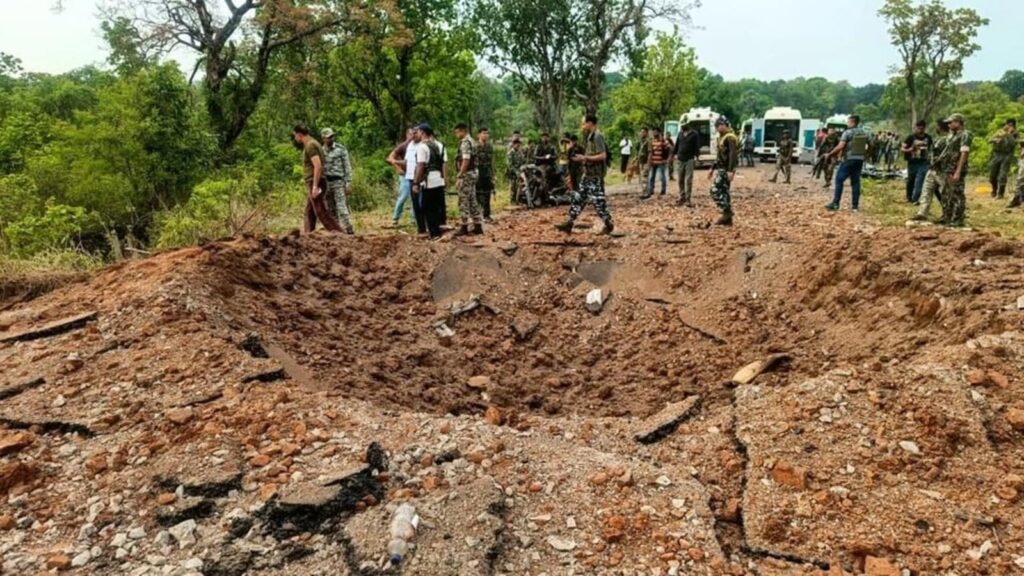In a milieu where the relentless ingress of security forces into territories once considered impregnable had pushed the Maoists onto the backfoot over the last few years and squeezed their resources and logistical lines, the bombing of a police convoy in Chhattisgarh’s Dantewada district on Wednesday stands out and underlines the need for immediate correctives.
The motives driving the attack — an improvised explosive device claiming the lives of 10 policemen and their driver in what was the worst strike on security forces in the region in two years — can be many. A section of the security establishment believes the insurgents are frustrated by the advances made by the government in securing territory and building infrastructure, and that the blast was a desperate way to lash out and register their presence. Another section believes that more alacrity is needed in anti-Maoist operations across the entire Bastar region, not just on select corridors. A third line of thought says that lines of human intelligence have frayed in recent years and need to be bolstered again. Nonetheless, the sequence of events that led to the explosion raises many questions. Were standard operating procedures followed in moving police personnel across the red corridor? Why was a private rented minivan used to transport the men? Did the insurgents have advance knowledge of the convoy’s movement and route? How did the rebels plant 40kg of explosives so close to a police station? How did they burrow under a newly constructed, black-tarred road? A command IED requires someone to pull a trigger or a wire nearby, and investigators indicated three rebels hid in the forests that lined the road. How did they evade detection? Was there a road opening party that sanitised the stretch? These questions will need to be thoroughly probed and remedial action taken.
Beyond the immediate investigation, though, the regrettable loss of lives holds out some lessons. Despite their successes in recent years, the security forces cannot afford complacency creeping into any aspect of their operations, and every step of the standard operating procedure will need to be followed rigorously. Authorities will also need to be cognisant of the shifting tactics of the insurgents, moving from gun battles and ambushes to large, remote-controlled explosions involving IEDs and crude bombs. And they will have to keep up their efforts to make inroads into the rebel heartland, through roads, infrastructure development, and outreach to common people.
Enjoy unlimited digital access with HT Premium
Subscribe Now to continue reading


